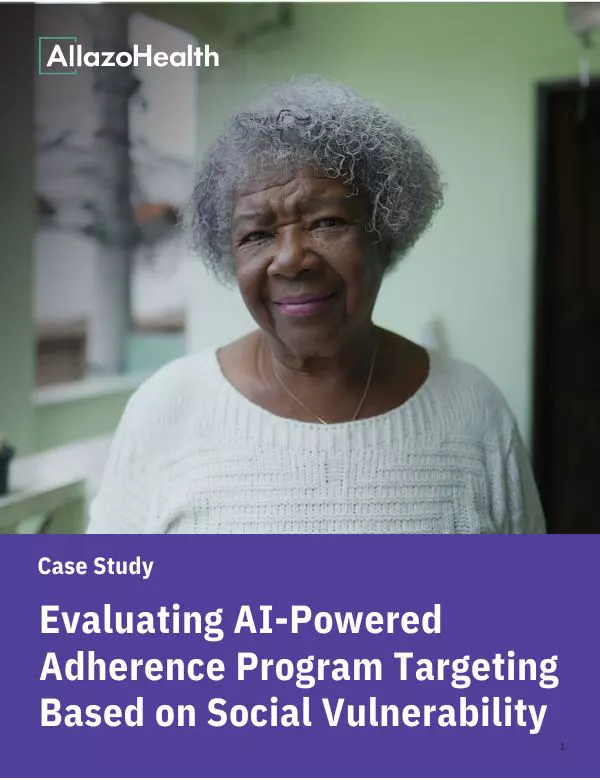
Explore how Walgreens worked with AllazoHealth to deliver personalized patient experiences using artificial intelligence (AI), positively impacting patients, regardless of their social vulnerability level.
The Challenge
Considerations for AI-Enabled Medication Adherence Programs and Bias
AI-driven adherence programs rely on predictions that use patient-level data. One concern in the industry is that groups with more barriers to care (such as those with low income, lack of access to transportation, or mental health challenges) may be deprioritized if outreaches are predicted to increase the impact on groups not facing those kinds of difficulties. To ensure health equity, AI-enabled programs must be evaluated for unintended bias.
The Solution
Targeting the Right Patients with the Right Message at the Right Time Using AI
To mitigate unintended bias, Walgreens used predictive analytics provided by AllazoHealth to target and personalize patient outreach. The program aimed to improve patients’ adherence to diabetes, hypertension, and statin medications.
The Results
AI Provided More Support to the Most Socially Vulnerable Patients
This case study demonstrated that the AllazoHealth AI solution was not biased because it naturally provided more support to socially vulnerable populations. Using AllazoHealth’s AI solution, Walgreens’ most socially vulnerable patients with hypertension were 23.2% more likely to be targeted for outreaches than the least vulnerable, and socially vulnerable patients on statins were 25.9% more likely to be targeted for outreaches than the least vulnerable.
Download this free case study to see how Walgreens effectively addressed health equity in patients with the greatest risk of non-adherence and learn how the company leveraged AI to tailor every communication for each individual. Fill out the form to get immediate access.